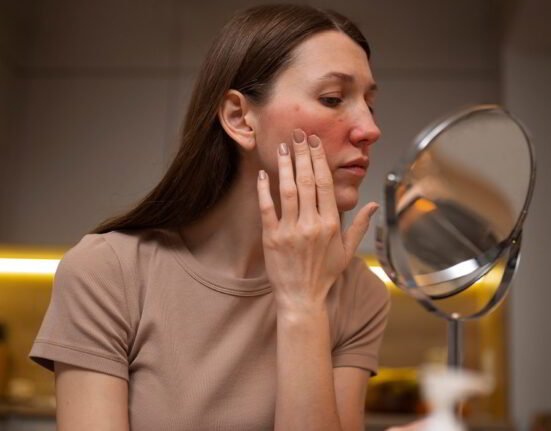Sleep is more of a luxury in today’s fast-moving world than it is a necessity. Pestered by continuous digital stimuli, burdened brains, and differential time charts, most of us feel the pain of getting quality sleep. Then comes ASMR, a fledgling phenomenon gaining millions of eyeballs as a probable panacea for sleeplessness.
What is ASMR?
The Autonomous Sensory Meridian Response is an overwhelming static-like sensation that travels down the spine from the scalp, occurring in response to specific sensory stimuli. It’s most of the time a very nice feeling, which is accompanied by a changed level of consciousness, extreme relaxation, feelings of euphoria, and the present moment.
Although individual triggers are very personal, they typically involve certain bodily sensations, sounds, images, social encounters, or a combination of these inputs. It is usually a calming or pleasing response to tactile, olfactory, visual, or cognitive stimuli. In addition to the induction of feelings and sensations that are pleasurable, it is often pursued because it has been reported to improve the quality of sleep and also reduce the symptoms of severe issues like depression, persistent pain or anxiety.
In the last decade, scientists have been exploring it, partly due to the publicity from social media sites that describe the phenomena. Scientists state that ASMR can benefit health and well-being, even if the research on the subject is at an early stage.
ASMR and Sleep: A Match Made in Heaven
The relationship between ASMR and sleep cannot be denied. The best time to induce ASMR is usually at night just before going to bed because most people use it to help fall asleep. It has been shown that one feels ASMR due to feelings of pleasure and relaxation. It is possible to raise the levels of dopamine and oxytocin in a body when it feels these emotions.
Many people claim that ASMR can really trigger deep relaxation, hence perfectly ideal for winding down before bed. Such soft, repetitive sounds help quiet the mind, reduce anxiety, and set up an environment that allows one to fall asleep easily. Preliminary studies in this area indicate that ASMR can keep a person relaxed by raising the type of brain waves one would go into while sleeping.
In a 2015 study, when asked about ASMR practices, a whopping 82 per cent of people mentioned sleep. Furthermore, anecdotal data shows that it may help you fall asleep, however further research is necessary to confirm this.
How Does ASMR Help You Sleep?
It helps in facilitating sleep through several mechanisms, such as:
- Mindfulness and Focus: It helps in setting one’s mind away from thoughts and fears and creates a chance for your mind to wind down and, thus to sleep.
- Stress Reduction: It has been observed that ASMR lowers cortisol, the hormone that causes stress. Lower levels of this hormone in the body contribute towards developing good sleep.
- Relaxation Response: The tingling sensation created from it is known for activating the relaxation response in the body. The fight-or-flight reaction, which is known to keep individuals awake, is the opposite of this.
Sleep Improvement Tips Using ASMR
- Conducive Environment: Your room should always be dark, quiet, and cool.
- Be Consistent: Add it to your sleeping routine to be able to get the best sleep.
- Put on Headphones: This is crucial in creating the immersive experience associated with ASMR and also blocks external noise.
- Mindful Listening: Show an understanding of the sensations, tingling feelings, and sounds that play around you without other distractions.
- Have less blue light exposure: Blue light, given off by screen devices, might give one insomnia. If possible, steer clear of all screens using an ASMR trigger involving touching or sound.
- Never go to bed troubled: Devote some time before sleeping to think through your issues and stress. Think about writing these issues down in a diary or journal just before going to bed.
- Choosing the Right ASMR Content: You have to go through several videos or audio that would likely put you to sleep. Some are attracted by whispering, others by role-playing, and others by some kind of environmental sounds.
Common ASMR Sleep Triggers
- Whispering: Barely audible, soft, gentle whispers can be inhaled, very soothing.
- Role-Play: Engage in some soothing role-play scenarios, like a spa or personal treatment.
- Visual Stimuli: Others find visual elements, such as slow motion or close-up shots, soothing.
- Environmental Sounds: The sounds of rain, ocean waves, or even the forest can be very calming.
Cautionary Notes
Although ASMR is usually safe, it’s crucial to pay attention to your body. If you start experiencing any discomfort or ill effects at all, don’t hesitate to turn off the ASMR and seek medical advice. Even while ASMR is frequently lauded as a useful sleep tool, there are still some matters concerning sleep that may not be solved by it. Discuss your symptoms with your doctor if you habitually have trouble sleeping or always feel extremely tired during the day. Additionally, one should ensure a balanced sleep hygiene routine, both in regular sleep schedules and in comfortable sleeping environments, while at all times avoiding any exposure to screen time before bed.
It shows great promise for the possibility of improvement in the quality of sleep. Integrate ASMR into your bedtime routine to help bring down your stress levels by increasing relaxation and taking you through a sounder sleep. After all, it is about finding what will work best for you. Experiment with different ASMR triggers until you can create a personal sleep-inducing experience.
References +
Barratt, E. L., & Davis, N. J. (2015). Autonomous Sensory Meridian Response (ASMR): a flow-like mental state. PeerJ, 3, e851. https://doi.org/10.7717/peerj.851
Pedrini, C., Marotta, L., & Guazzini, A. (2021). ASMR as Idiosyncratic Experience: Experimental evidence. International Journal of Environmental Research and Public Health, 18(21), 11459. https://doi.org/10.3390/ijerph182111459
Marcin, A. (2022, April 19). What Is ASMR? Your Guide to Tapping into Relaxation. Healthline. https://www.healthline.com/health/autonomous-sensory-meridian-response#affects
Bryan, L., & Bryan, L. (2024, January 26). ASMR for Sleep: How it works and triggers to try. Sleep Foundation. https://www.sleepfoundation.org/noise-and-sleep/asmr
Okoye, A. (2024, January 22). ASMR and sleep: relaxing or distracting? Sleep Doctor. https://sleepdoctor.com/noise/asmr-and-sleep/













Leave feedback about this